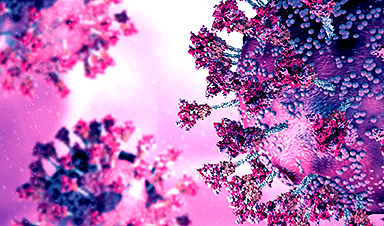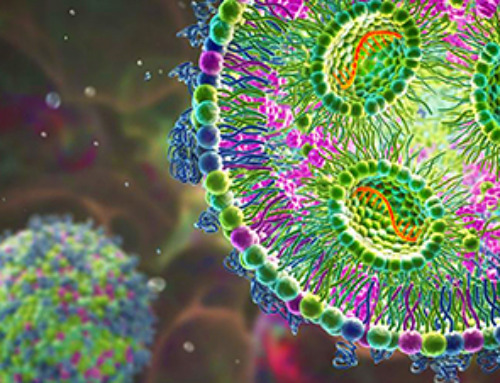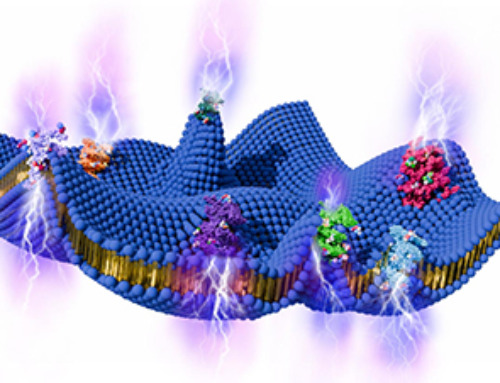According to new research, children exhibit a robust initial immune response to the coronavirus, however, they are unable to transfer this response to long-lasting memory T cells like adults do.
Researchers led by scientists at the Garvan Institute of Medical Research have discovered why children have largely avoided severe symptoms of COVID-19. It turns out that children have a robust initial 'innate' immune response that quickly overpowers the virus. However, unlike the immune systems of adults, children's immune systems do not retain memory of the virus and don't adapt, so when they are exposed to SARS-CoV-2 again, their bodies still perceive it as a new threat.
"The price that children pay for being so good at getting rid of the virus in the first place is that they don't have the opportunity to develop 'adaptive' memory to protect them the second time they are exposed to the virus," says lead author Professor Tri Phan, Head of the Intravital Microscopy and Gene Expression (IMAGE) Lab and Co-Lead of the Precision Immunology Program at Garvan.
The immune system has two modes. The innate immune system is the first line of defense, comprising physical barriers such as skin and mucosal surfaces that block viruses from entering. It is also composed of cells that make chemicals to signal to other cells and ward off the viruses. The innate immune system does not distinguish between one type of virus and another.
The second line of defense comprises B and T cells of the adaptive immune system. These cells have specific receptors that can recognize and distinguish different parts of a virus and generate a rapid response to neutralize or limit it.
Infants start with an immune system blank slate, which has a much higher proportion of naïve T cells, the researchers found. As they move through childhood into adulthood and become exposed to more viruses, the naïve T cells are replaced by memory T cells that are locked into making responses to viruses they have seen before.
"Over time, as you get infections, your immune system becomes more 'educated', allowing you to make a faster immune response that's tightly matched to the viruses that have infected you before," says Associate Professor Philip Britton, pediatric infectious diseases physician at the Children's Hospital at Westmead, and clinical lead in the study. "Children's immune systems move from relying mostly on the innate system to needing the adaptive system as a backup as they grow older and are unable to clear viruses as rapidly."
In the new study, published in the journal Clinical Immunology, Professor Phan, Associate Professor Britton, and colleagues took a deep dive to investigate T cells and cellular immune responses of a small group of children and their household family contacts who had mild or no symptoms from coronavirus (SARS-CoV-2) infection.
The researchers sequenced white blood cell samples to analyze T cells in children and adults at the time of acute infection and one month later.
Because they studied household family contacts who were infected, researchers could control for the impact of genetic or environmental influences on the immune response.
They found that children had many different naive T cells to fight SARS-CoV-2 and made poor memory T cell responses to the virus after they had recovered, whereas the adults had few naïve T cells but made good memory T cell responses after recovery.
Interestingly, the findings point to why older adults can have a kind of immune overreaction to SARS-CoV-2.
"When adults are infected for the first time with SARS-CoV-2, their memory T cells recognize only what they've seen before – like a familiar part of the coronavirus that is shared with the common cold coronaviruses," Professor Phan says.
"This may lock the immune system into a misdirected response that is not specific to SARS-CoV-2. It provides an opportunity for the virus to escape and multiply unchecked to cause more severe symptoms as the immune system ramps up to try and fix the problem."
News
Nanomedicine in 2026: Experts Predict the Year Ahead
Progress in nanomedicine is almost as fast as the science is small. Over the last year, we've seen an abundance of headlines covering medical R&D at the nanoscale: polymer-coated nanoparticles targeting ovarian cancer, Albumin recruiting nanoparticles for [...]
Lipid nanoparticles could unlock access for millions of autoimmune patients
Capstan Therapeutics scientists demonstrate that lipid nanoparticles can engineer CAR T cells within the body without laboratory cell manufacturing and ex vivo expansion. The method using targeted lipid nanoparticles (tLNPs) is designed to deliver [...]
The Brain’s Strange Way of Computing Could Explain Consciousness
Consciousness may emerge not from code, but from the way living brains physically compute. Discussions about consciousness often stall between two deeply rooted viewpoints. One is computational functionalism, which holds that cognition can be [...]
First breathing ‘lung-on-chip’ developed using genetically identical cells
Researchers at the Francis Crick Institute and AlveoliX have developed the first human lung-on-chip model using stem cells taken from only one person. These chips simulate breathing motions and lung disease in an individual, [...]
Cell Membranes May Act Like Tiny Power Generators
Living cells may generate electricity through the natural motion of their membranes. These fast electrical signals could play a role in how cells communicate and sense their surroundings. Scientists have proposed a new theoretical [...]
This Viral RNA Structure Could Lead to a Universal Antiviral Drug
Researchers identify a shared RNA-protein interaction that could lead to broad-spectrum antiviral treatments for enteroviruses. A new study from the University of Maryland, Baltimore County (UMBC), published in Nature Communications, explains how enteroviruses begin reproducing [...]
New study suggests a way to rejuvenate the immune system
Stimulating the liver to produce some of the signals of the thymus can reverse age-related declines in T-cell populations and enhance response to vaccination. As people age, their immune system function declines. T cell [...]
Nerve Damage Can Disrupt Immunity Across the Entire Body
A single nerve injury can quietly reshape the immune system across the entire body. Preclinical research from McGill University suggests that nerve injuries may lead to long-lasting changes in the immune system, and these [...]
Fake Science Is Growing Faster Than Legitimate Research, New Study Warns
New research reveals organized networks linking paper mills, intermediaries, and compromised academic journals Organized scientific fraud is becoming increasingly common, ranging from fabricated research to the buying and selling of authorship and citations, according [...]
Scientists Unlock a New Way to Hear the Brain’s Hidden Language
Scientists can finally hear the brain’s quietest messages—unlocking the hidden code behind how neurons think, decide, and remember. Scientists have created a new protein that can capture the incoming chemical signals received by brain [...]
Does being infected or vaccinated first influence COVID-19 immunity?
A new study analyzing the immune response to COVID-19 in a Catalan cohort of health workers sheds light on an important question: does it matter whether a person was first infected or first vaccinated? [...]
We May Never Know if AI Is Conscious, Says Cambridge Philosopher
As claims about conscious AI grow louder, a Cambridge philosopher argues that we lack the evidence to know whether machines can truly be conscious, let alone morally significant. A philosopher at the University of [...]
AI Helped Scientists Stop a Virus With One Tiny Change
Using AI, researchers identified one tiny molecular interaction that viruses need to infect cells. Disrupting it stopped the virus before infection could begin. Washington State University scientists have uncovered a method to interfere with a key [...]
Deadly Hospital Fungus May Finally Have a Weakness
A deadly, drug-resistant hospital fungus may finally have a weakness—and scientists think they’ve found it. Researchers have identified a genetic process that could open the door to new treatments for a dangerous fungal infection [...]
Fever-Proof Bird Flu Variant Could Fuel the Next Pandemic
Bird flu viruses present a significant risk to humans because they can continue replicating at temperatures higher than a typical fever. Fever is one of the body’s main tools for slowing or stopping viral [...]
What could the future of nanoscience look like?
Society has a lot to thank for nanoscience. From improved health monitoring to reducing the size of electronics, scientists’ ability to delve deeper and better understand chemistry at the nanoscale has opened up numerous [...]





















